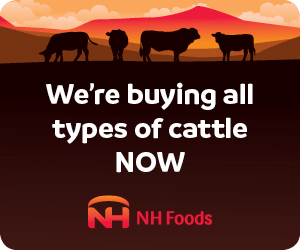The Australian beef industry now has the data to prove it is improving its care of natural resources, animals and people, through the ongoing Australian Beef Sustainability Framework process.
The second Australian Beef Sustainability Annual Update to be launched in June will demonstrate the industry is improving its care of natural resources, animals and people and addressing issues that matter to major customers, investors, special interest groups and the broader community.

The report is being produced by the Australian Beef Sustainability Framework, a whole-of-industry initiative to define and track sustainable beef production in the Australian context.
NSW lot feeder and farmer Tess Herbert chairs the industry-representative group appointed to steer the Framework. She says the team has worked in the past year to refine the way things are measured things and to collect more data.
“The beef industry in under increasing scrutiny. Demands from outside our industry to prove our care for the environment, animals and people have grown in the past year,” Tess says.
“This Framework is a way to be on the front foot, address concerns and tell our story. I think this year’s report is a great example of this.”
She says the 2019 Annual Update has data for 80 per cent of the Framework indicators – up 20 percentage points from last year.

Tess Herbert
“This gives the industry a great baseline from which we can show our improvement to build community trust, and protect and grow access to markets and capital,” she says.
“We can turn steps into strides on sustainability.”
Tess says she is pleased to see beef businesses using the Framework to drive their own sustainability initiatives.
Highlights to expect from the report include:
- The first national vegetation indicators and measures for the beef industry;
- Increased use of pain relief on cattle;
- Development of an implementation plan for the industry to be carbon neutral by 2030;
- From 2005 to 2016, the beef industry reduced its greenhouse gas emissions by 57.6%;
- Establishment of the National Livestock Genetics Consortium; and
- The beef industry’s involvement in the Rural Safety and Health Alliance (RSHA) to invest in practical extension solutions.
The full report will be launched on Thursday 6 June and will be available from that date at this link
